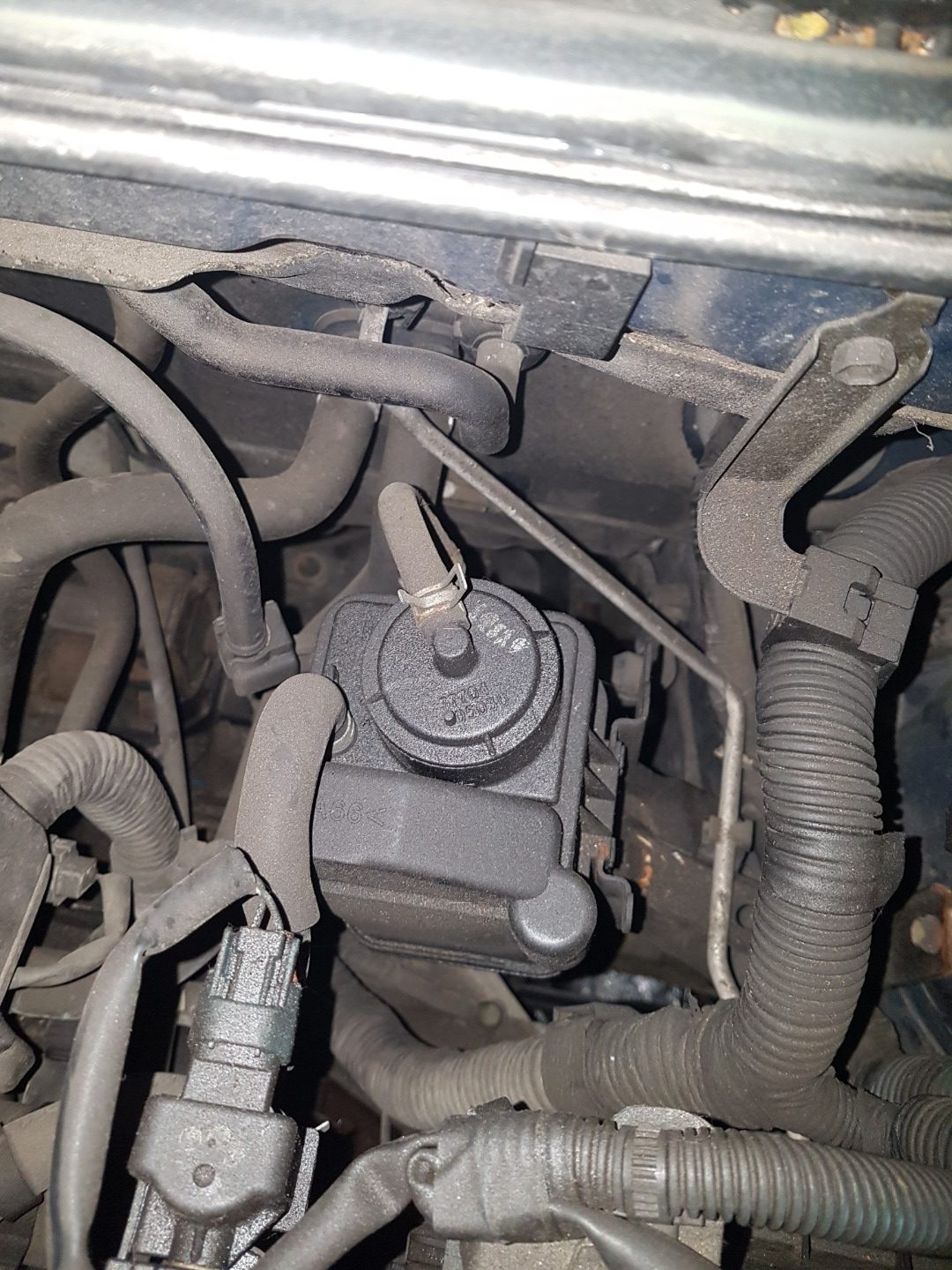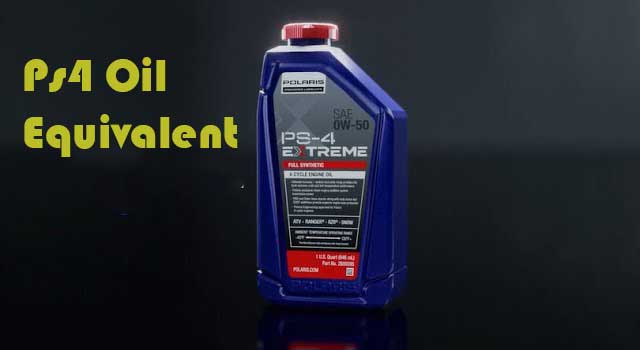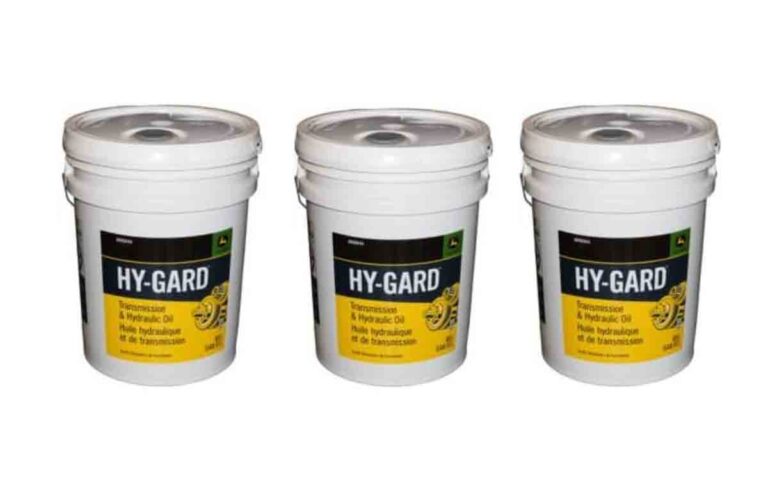Nissan E-Psf Fluid Equivalent: Unleash the Power within your Vehicle

The Nissan e-psf fluid equivalent is Genuine Nissan Fluid 999MP-EPSF00P and Lubegard 23232 Complete Synthetic Power Steering Fluid.
It is important to use the correct fluid in your Nissan vehicle to ensure optimal performance and longevity of the power steering system.
Our first choice for the E-PSF alternative is Genuine Nissan Fluid 999MP-EPSF00P. It has impressed me with its remarkable performance.
Its seamless integration with Nissan’s electric power steering system guarantees a driving experience characterized by smooth and precise handling.
Its reliability and ability to safeguard the vehicle’s steering components have left them reassured and satisfied with one’s choice.
Lubegard 23232 Complete Synthetic Power Steering Fluid is our second choice for Nissan E-PSF Equivalent.
Its advanced synthetic formula is designed to seamlessly integrate with a variety of power steering systems, providing excellent compatibility and performance.
This fluid not only ensures smooth and responsive steering but also offers enhanced protection for vital steering components, making it a reliable choice for maintaining vehicle’s optimal performance.
Also Read: Castrol Transynd 668 Equivalent
Advantages of using manufacturer-recommended fluids for Nissan

Using manufacturer-recommended fluids for your Nissan vehicle offers a range of advantages that contribute to optimal performance, longevity, and overall driving satisfaction. Here’s a breakdown of the key benefits:
Enhanced Performance
The right fluids contribute to optimal performance. Engine oils, transmission fluids, and other recommended fluids are formulated to withstand the specific conditions your Nissan faces, enabling smooth shifting, efficient combustion, and improved fuel efficiency.
Longevity and Durability
Manufacturer-approved fluids often have additives that protect against corrosion, oxidation, and premature wear.
By using these fluids, you’re investing in the long-term health of your Nissan, potentially extending its lifespan and reducing the likelihood of major repairs.
Optimal Fuel Efficiency
Some fluids, like engine oils, impact your vehicle’s fuel efficiency. Manufacturer-approved fluids are designed to minimize friction and improve engine efficiency, contributing to better gas mileage over time.
Reduced Risk of Malfunctions
Using fluids not recommended by the manufacturer can lead to malfunctions, leaks, and system failures.
Sticking with approved fluids reduces the risk of these issues and the associated headaches and expenses.
Also Read: TES 668 Transmission Fluid Equivalents
How to Identify the Right PSF for Your Nissan Vehicle

Identifying the right Power Steering Fluid (PSF) for your Nissan vehicle is crucial to maintaining optimal performance and extending the life of your power steering system. Here’s a step-by-step guide to help you find the correct PSF:
Manufacturer Manual
The first and most important step is to refer to your Nissan’s owner’s manual. It’s a treasure trove of information and will usually have specific recommendations for the type of PSF your vehicle requires. Look for a section related to fluids, maintenance, or specifications.
Check the Fluid Cap or Reservoir
Open the hood of your Nissan and locate the power steering fluid reservoir. The cap or reservoir itself might have information about the type of fluid needed. Look for labels or text that indicate the correct PSF specification.
Use VIN Decoder Tools
Your Nissan’s Vehicle Identification Number (VIN) contains a wealth of information about your vehicle, including its specifications and recommended fluids. You can use online VIN decoder tools to extract this information.
Also Read: Transynd 668 Vs 295
Drawbacks of using non-recommended fluids on your Nissan

Using non-recommended fluids in your Nissan vehicle can lead to various drawbacks and potential issues that compromise its performance, reliability, and longevity. Here’s an overview of the drawbacks you might encounter:
Reduced Performance
Non-recommended fluids may not have the appropriate properties to ensure optimal performance.
This can result in diminished engine efficiency, power steering responsiveness, and overall vehicle operation.
Voided Warranty
Using non-recommended fluids can potentially void your Nissan’s warranty. Manufacturers expect owners to adhere to their guidelines to ensure the vehicle’s proper maintenance and longevity. If non-approved fluids cause issues, you might be left with repair costs.
System Failures
Incompatible fluids can lead to power steering system failures, engine overheating, transmission slipping, and other critical malfunctions. These failures could result in costly repairs and potentially unsafe driving conditions.
Decreased Resale Value
Using non-approved fluids can signal to potential buyers that your vehicle hasn’t been properly maintained.
This perception can lead to a lower resale value as buyers may be concerned about the overall condition of the vehicle.
Compromised Fuel Efficiency
Incorrect fluids can negatively affect fuel efficiency. Engines might not perform optimally, resulting in decreased mileage and increased fuel consumption.
Also Read: Transynd Transmission Fluid Equivalent
Step-by-Step Guide to Changing PSF with Nissan E-PSF Equivalent
Here is the Step-by-Step Guide to Changing PSF with Nissan E-PSF Equivalent.
Step 1: Gather Supplies:
Collect the Nissan E-PSF Equivalent fluid recommended for your specific Nissan model. Refer to your owner’s manual or consult a dealership if you’re unsure about the right fluid.
Step 2: Open the Hood:
Lift the hood of your vehicle and secure it in place using the prop rod or latch.
Step 3: Locate the Power Steering Fluid Reservoir:
Identify the power steering fluid reservoir, usually located near the engine’s front and labeled with the appropriate cap.
Step 4: Loosen the Cap:
Loosen the cap of the reservoir to release any pressure. This will make the fluid draining process smoother.
Step 5: Place the Drain Pan:
Position the drain pan under the vehicle, directly beneath the power steering fluid reservoir.
Step 6: Remove the Drain Plug or Hose:
Depending on your Nissan model, you might need to remove a drain plug or disconnect a hose from the bottom of the reservoir to allow the old fluid to drain. Be cautious as the fluid might be hot.
Step 7: Drain the Old Fluid:
Let the old PSF flow into the drain pan until it’s completely drained. Use a clean cloth to wipe away any spills or drips.
Step 8: Reattach the Drain Plug or Hose:
If you removed a drain plug or hose, reattach it securely to the reservoir.
Step 9: Add New Fluid:
Using a funnel, pour the Nissan E-PSF Equivalent fluid into the reservoir. Be careful not to overfill; follow the level indicators on the reservoir.
Step 10: Check Fluid Level:
Replace the cap on the reservoir and tighten it. Start the engine and turn the steering wheel from lock to lock a few times to circulate the new fluid. This helps remove any air bubbles.
Step 11: Recheck Fluid Level:
After circulating the fluid, turn off the engine and allow it to settle for a minute. Check the fluid level again and top up if necessary.
Step 12: Clean Up:
Wipe any spilled fluid clean with a cloth. Dispose of the old fluid properly according to local regulations.
Step 13: Close the Hood:
Close the hood securely and you’re done!
Signs That Your Vehicle Needs Nissan E-Psf Fluid Equivalent
Is your vehicle experiencing difficulty in steering? Maybe you’ve noticed a noisy power steering system or leaking and contaminated power steering fluid.
These are not signs to be ignored. Your vehicle may be in need of nissan e-psf fluid equivalent.
Proper steering is crucial for safe driving. If you’re having trouble turning the wheel or if it feels stiff or unresponsive, it’s time to take action.
Noises coming from the power steering system, such as whining or groaning, are also red flags.
Leaking or contaminated power steering fluid can cause further damage to the steering system if not addressed.
Don’t wait until it’s too late; get your vehicle checked by a professional and ensure the right fluid is used to maintain optimal performance.
Also Read: Allison Transmission Fluid Capacity Chart
Frequently Asked Questions For Nissan E-Psf Fluid Equivalent
1. What Is Nissan E-Psf Fluid?
Nissan e-psf fluid, also known as electronic power steering fluid, is a specialized lubricant used in nissan vehicles equipped with electronic power steering systems.
It provides smooth operation, protects components from wear, and helps maintain optimum performance of the power steering system.
2. Is Nissan power steering fluid synthetic?
Yes, Nissan E-PSF Equivalent fluid is often synthetic, designed to meet the demands of modern power steering systems and enhance performance.
3. What color is Nissan power steering fluid?
Nissan power steering fluid is typically a reddish or pinkish color, making it easy to identify during maintenance checks.
4. Can I use synthetic ATF in power steering?
While some synthetic ATF (Automatic Transmission Fluid) can be used, it’s best to use the manufacturer-recommended fluid like Nissan E-PSF Equivalent for ideal power steering system operation.
5. What is Nissan PSF II?
Nissan PSF II (Power Steering Fluid II) is a specific type of power steering fluid designed by Nissan for compatible vehicles, providing optimal performance and protection.
6. Does Nissan have power steering fluid?
Yes, Nissan offers specific power steering fluids like E-PSF Equivalent, tailored to their vehicles’ requirements for smoother steering and system longevity.
7. Why Is It Important To Use The Equivalent Fluid For Nissan E-Psf?
Using the equivalent fluid for Nissan e-psf is crucial for maintaining the performance and longevity of the power steering system.
The equivalent fluid is specially formulated to meet the specific requirements of the Nissan power steering system, ensuring proper lubrication and optimal function.
8. Can I Use Any Power Steering Fluid Instead Of Nissan E-Psf?
It is not recommended to use any power steering fluid other than the specified nissan e-psf for nissan vehicles equipped with electronic power steering systems.
Using the wrong fluid can result in reduced performance, increased wear on components, and potential damage to the power steering system.
9. How Often Should I Replace The Nissan E-Psf Fluid?
The replacement interval for nissan e-psf fluid can vary depending on usage and driving conditions.
It is recommended to follow the maintenance schedule outlined in the vehicle’s owner’s manual.
Typically, the fluid should be inspected and replaced if necessary every 30,000 to 50,000 miles or as recommended by Nissan.
Conclusion
And there you have it, the dynamic world of Nissan E-PSF Equivalent unveiled! It’s like giving your electric ride a secret handshake – the right fluid that speaks its language.
So, when you’re navigating those electric avenues, remember that this isn’t just about a fluid change, it’s about empowering your Nissan with the ultimate steering prowess.
It’s like fuel for its soul, guiding you through twists and turns with an electric smile. Stay charged, stay fluid, and keep cruising toward the electrifying horizon!






